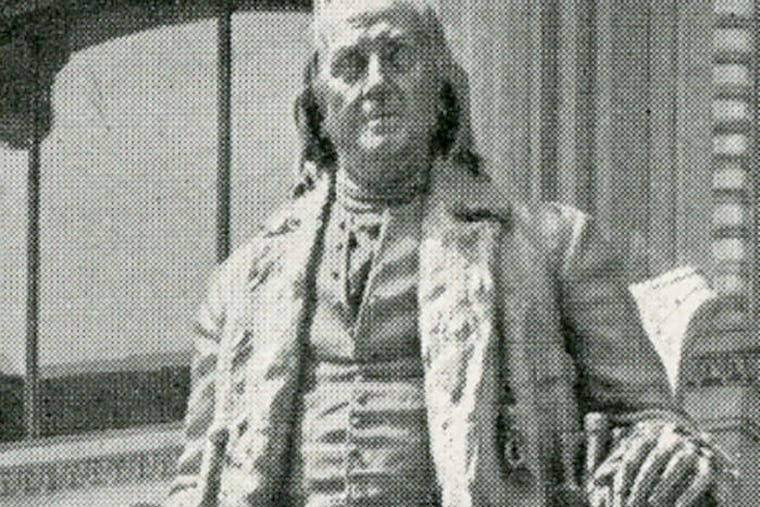Ben Franklin, postal purveyor
To Benjamin Franklin's successes in science, statecraft, and slyness, add a lesser-known exploit: postal service. Among the many hardships of colonial life, lack of communication perhaps ranked right behind hunger and fear. In the absence of a service operated by the British crown, many fledgling colonies instituted private mail systems. In 1683, the Pennsylvania Ass

To Benjamin Franklin's successes in science, statecraft, and slyness, add a lesser-known exploit: postal service.
Among the many hardships of colonial life, lack of communication perhaps ranked right behind hunger and fear. In the absence of a service operated by the British crown, many fledgling colonies instituted private mail systems. In 1683, the Pennsylvania Assembly decreed "All justices of the peace, sheriffs or constables . . . empowered to press either man or horse" to deliver mail, allowing "two pence per mile to be paid out of the public stock" for any inconvenience.
To get messages across the plantation patchwork of the South, the region's hospitality alone could not be relied upon: A "hogshead" of tobacco (a barrel nearly four feet high) was the penalty for failing to participate in colonial mail relays.
It may amuse modern observers of state-subsidized mail that the crown finally decided to get involved in intercolonial post to make money. Coffers pinched by war with Spain, it concluded in 1710 that "rates of postage may in many parts . . . be increased and other new rates granted, which . . . may in some measure enable your Majesty to carry on and finish the present war." But the Chancellor of the Exchequer should have double-checked its maths. The crown's North American postal efforts were soon hemorrhaging money.
Onto this scene of inefficiency and bureaucratic bloat sprang a spry, 28-year-old Ben Franklin. In 1737, as the printer of the Pennsylvania Gazette, Franklin made a likely choice for postmaster of Philadelphia. Newspaper publishers often served in this role, mainly out of self-interest: The news would come to them. "I accepted it readily, and found it of great advantage; for, tho' the salary was small, it . . . improved my newspaper," Franklin preened in his Autobiography. "My old competitor's newspaper declined proportionately."
America's postal receipts outgrew Ireland's during Franklin's tenure as co-deputy postmaster of North America, to which he was promoted in 1753. Franklin sped up service by having post riders travel day and night. A local "penny post," delivering within a strict radius for a penny a letter, was another of his reforms. In one year, Franklin traveled 1,600 miles surveying postal routes and "offices" (often taverns or coffeehouses) from Virginia to New England, plotting out economies and improvements.
It wasn't until 1760 that, under Franklin's management, the Parliamentary Post cleared its first profit. Nevertheless, Franklin was dismissed in 1774 due to his open sympathy for rebellious colonists.
A few months after the skirmishes at Lexington and Concord, on July 26, 1775, Franklin was appointed postmaster general of what would become the U.S. Post Office. This was no innocuous position: In wartime, transmission of intelligence became critical. Franklin held the post until diplomatic efforts in Paris called him away.
It's a sign of the importance of the Postal Service that until 1971, the postmaster general was a cabinet member and the last in the line of presidential succession.